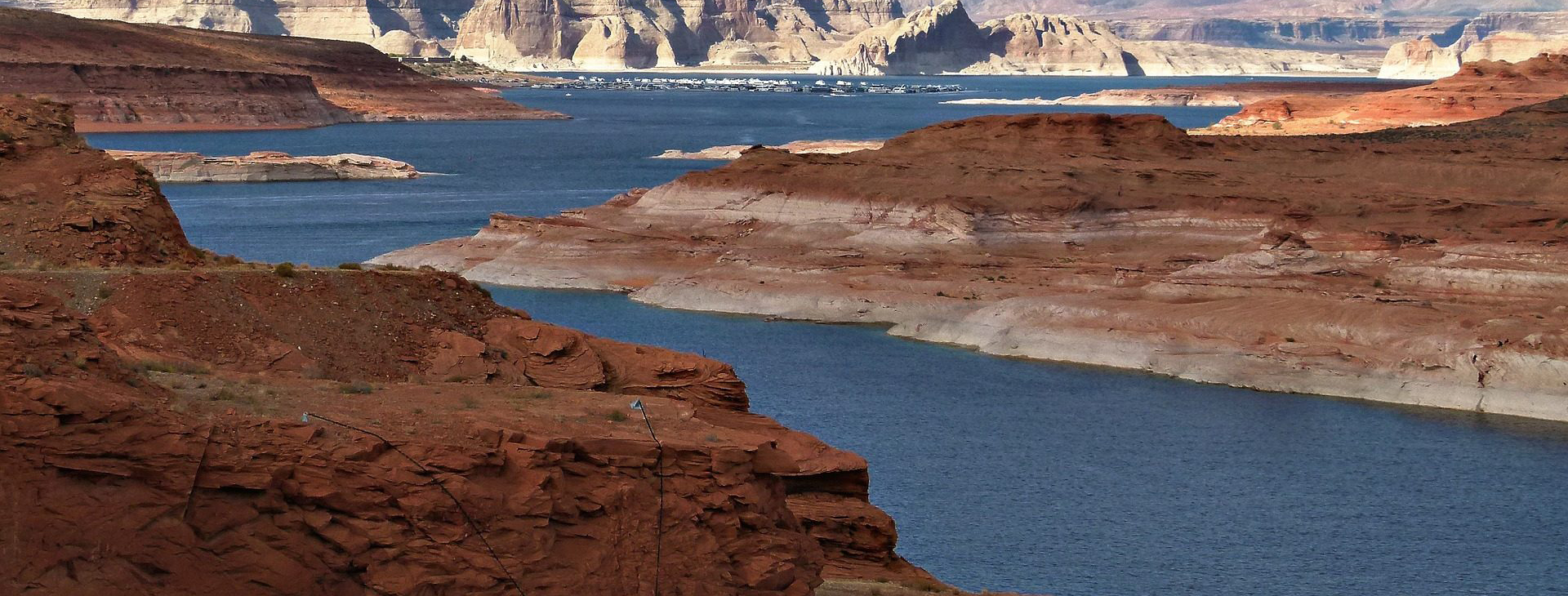The Pacific Institute engages with its partners, the state, and others to create a more sustainable, resilient, and equitable water future for California.
As one example, the Pacific Institute is working to ensure that all California communities are prepared for droughts, which are becoming more frequent and intense. In May 2016, Governor Jerry Brown directed state agencies to take actions to use water more wisely, eliminate water waste, strengthen local drought resilience, and improve agricultural water use efficiency and drought planning. This directive ultimately led to Assembly Bill 1668 (Friedman) and Senate Bill 606 (Hertzberg). These bills, signed by Governor Brown in June 2018, created a new, more equitable framework for setting customized water use targets for urban water suppliers and improved water management and drought planning. These laws were passed on the heels of years of science-based Pacific Institute research demonstrating the efficacy of water efficiency for ensuring water security and climate resilience. The Pacific Institute worked closely with a broad coalition to help the bill’s authors craft a law that ensures we make the most of our precious water resources and serves as a model that can be adopted elsewhere.
The Pacific Institute has also been helping develop innovative policy mechanisms to measure and deliver affordable drinking water and wastewater services in the State of California through processes led by the California State Water Resources Control Board (“State Water Board”) and the California Public Utilities Commission. The State Water Board has been asked by the Legislature through Assembly Bill 401 to develop a statewide plan to assist low-income customers with their water bills. If enacted, the State Water Board’s plan would be the first statewide effort to address water affordability. In a complementary effort, the California Public Utilities Commission has opened two rulemakings: one to develop an affordability metric for utility bills, and another to overhaul its bill discount programs for low-income customers. A sampling of our recent contributions towards sustainable and equitable water policy in California:
- February 7, 2020: Comment Letter on the Draft Water Resilience Portfolio for the State of California Regarding a Multi-Benefit Approach
- February 7, 2020: Comment Letter on the Draft Water Resilience Portfolio for the State of California
- January 8, 2020: Comment Letter on the Proposed Urban Water Conservation Reporting Regulations for the State of California
- February 1, 2019: Comment Letter on the State Water Board’s Low Income Water Rates Assistance Draft Report
- August 15, 2018: Comments on the California Public Utilities Commission Amended Scope for a Low Income Water Rates Assistance Program
- April 5, 2018: Presentation for Water Board’s Affordability Symposium: “Water Affordability in California: Linking Affordability Indicators to Policy Decisions”
- August 25, 2017: Comment Letter on State Water Board Proposed Low-Income Rate Assistance Program
- June 29, 2017: Comments on the California Public Utilities Commission Initial Scope for a Low Income Water Rates Assistance Program
- April 24, 2017: Testimony at the Assembly Natural Resources committee on the disclosure of chemicals used in oil and gas production in California
- January 18, 2017: Open Letter to Governor Brown urging further water conservation and efficiency measures
- December 19, 2016: Detailed Comments on Implementing Executive Order B-37-16, Public Review Draft Comment
- December 19, 2016: Comments on Implementing Executive Order B-37-16, Public Review Draft Comment
- October 2016: Comments on Water Waste Prohibitions
- May 16, 2016: Comments on Emergency Drought Regulations
- January 28, 2016: Comments on Emergency Drought Regulations
- January 6, 2016: Comments on Emergency Drought Regulations
- October 14, 2015: Comments on Conservation Regulations Workshop
- February 26, 2014: Testimony to the California State Water Resources Control Board addressing the California drought



